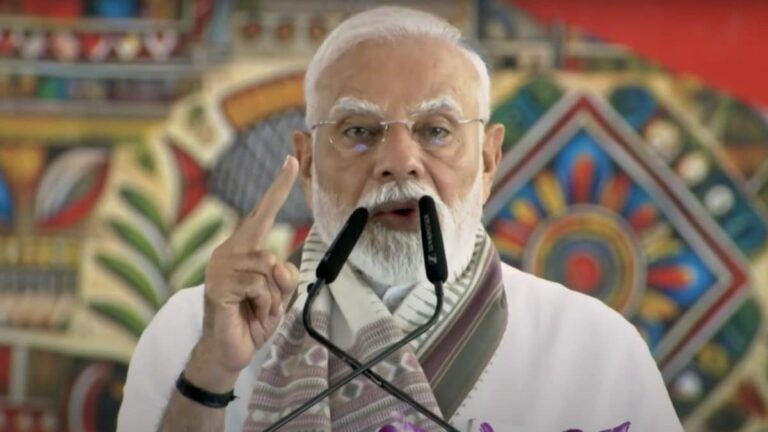Last Updated: August 22, 2025, 13:44 IST
PM Modi Advocates for Bills Targeting Arrested Officials

During a recent address in Bihar’s Gayaji, Prime Minister Narendra Modi emphasized the importance of proposed legislation that would mandate the removal of Prime Ministers and Chief Ministers from their positions if they are denied bail for 30 days following their arrest. Modi asserted that these bills aim to bolster efforts to combat corruption at the highest levels of government.
The Prime Minister drew a comparison between the treatment of government employees and that of top officials, questioning why individuals in powerful positions can remain in office despite facing serious legal challenges. “A government employee loses their job within hours of arrest, so why should leaders like CMs, Ministers, or even the PM be allowed to retain their positions while incarcerated?” Modi stated.
Legislation to Ensure Accountability
Modi passionately argued, “No one should be above the law. It’s unacceptable that some leaders wield power from behind bars. If lower-level employees face immediate consequences, shouldn’t the same apply to those in higher offices?” His comments were particularly pointed, with references to specific instances involving leaders who allegedly continued to govern while incarcerated, indicating a systemic issue with accountability.
In a clear reference to Arvind Kejriwal, the Chief Minister of Delhi who was arrested in connection with a liquor scam, Modi highlighted the paradox of leaders issuing directives from jail. “If individuals can conduct state business from jail, how can we reasonably expect to tackle corruption?” he questioned.
Details of the Proposed Bills
The Prime Minister discussed three specific pieces of legislation: the Constitution (130th Amendment) Bill, the Government of Union Territories (Amendment) Bill, and the Jammu and Kashmir Reorganisation (Amendment) Bill, all submitted to the Lok Sabha by Union Home Minister Amit Shah.
The Constitution (130th Amendment) Bill stipulates that a Prime Minister, Chief Minister, or Minister would be automatically dismissed from their roles if they are in judicial custody for 30 consecutive days without securing bail. However, this condition applies only if the arrest pertains to a crime with a punishment of five years or more.
Opposition Response and Further Discussions
The proposals have met with criticism from opposition parties, who claim that these bills are unconstitutional and undemocratic. As the debate continues, the bills have been referred to a Joint Parliamentary Committee for more extensive review and discussions. Home Minister Amit Shah expressed the intent to ensure comprehensive deliberation by including members from both the ruling and opposition parties in the JPC.
As these bills advance through the legislative process, the potential implications for governance and accountability in Indian politics remain a focal point of public interest and discussion, highlighting the ongoing struggle against corruption and the quest for ethical leadership.
